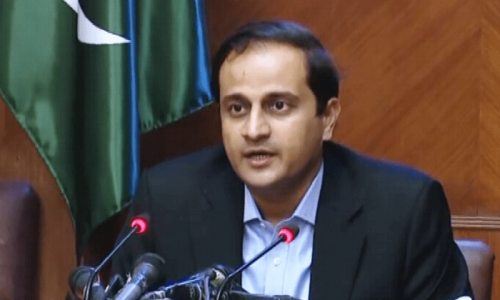ON the 9th of November, we will again commemorate Allama Iqbal’s birthday. And like before, quite a few books and magazines on Iqbal have appeared this year as well, adding to the huge body of literature known as ‘Iqbaliyaat’, or Iqbal studies.
One feels that some of the publications deserve at least a brief introduction since it would also record the literary trend of writing on Iqbal, which continues on as usual.
Many Urdu poets have attracted much attention from critics and researchers alike but Iqbal and Ghalib are the poets on whom quite large bodies of works — referred to as ‘Ghalibyaat’ or ‘Iqbaliyaat’ — have been amassed. One feels that hardly any aspect of the poetry and life of these two great bards would have been unexplored. But scholars keep churning out works on them every year, though, frankly speaking, in many cases little new information is added to the known facts and opinions already expressed.
However, every few years, a book or two appear to make one feel that indeed there are some territories which still remain uncharted. One such book is ‘Iqbal aur Hadees’ and was published early this year. We know that Iqbal drew much inspiration from the Holy Quran.
Dr Ghulam Mustafa Khan in his marvellous work ‘Iqbal aur Quran’ has shown in detail which couplet or line of Iqbal and which thought of Iqbal expressed in a specific poem has its origin in the Quran. He has also mentioned the chapters and verses of Quran in each such case.
Dr Khan had asked his able disciple Dr Muhammad Abdul Muqeet Shakir Aleemi to work on the verses of Iqbal for whom some Hadith of Prophet Muhammad (pbuh) worked as the underlying thought. The research took quite long but at last the book ‘Iqbal aur hadees’ was published.
But Dr Ghulam Mustafa Khan had covered Iqbal’s entire poetry, including Persian works, and Dr Abdul Muqeet Aleemi has researched four collections of Iqbal’s Urdu poetry — Bang-i-Dara, Baal-i-Jibreel, Zarb-i-Kaleem’ and Armughan-i-Hijaz.
But the saddening fact is that he passed away just when the present volume, covering over 900 pages, had been printed. Dr Aleemi intended to cover Iqbal’s Persian poetry in the second volume of this work. But his first book is also a monumental work and requires thorough knowledge of both Hadith and Iqbal’s poetry.
Dr Aleemi has taken extreme care in selecting Hadith and only the authentic ones have been quoted with references. In this work, as he has mentioned in the preface, he took into account many a software covering Hadith as well as Arabic and Urdu works. He has also reproduced the actual text of each Hadith with references. Published by the author himself, the book is available at major bookstores.
As mentioned above, a huge body of works on Iqbal already exists, and keeps on growing as every year new books are added to it. This sometimes makes it difficult for lovers of Iqbal, and especially students of Urdu literature, to know of the entire works published on the great poet.
Prof Dr Haroonur Rasheed Tabassum’s book ‘Iqbal ke gauher-i-shahvaar’ addresses this problem. In his book Prof Tabassum has enlisted 100 books on Iqbal in alphabetical order. The list not only gives bibliographical details of the books on Iqbal bit it also gives a brief intro to each book with the detailed list of contents.
Prof Tabassum has compiled similar introductory articles on 200 more books on Iqbal and intends to publish them in two separate volumes. The book, published by Lahore’s Maktaba-i-Taameer-i-Insaniyyet, has prefaces by Justice Javed Iqbal, Dr Khursheed Rizvi and Muhammad Suhail Umer.
Prof Fateh Muhmmad Malik is a scholar who has been writing on Iqbal and his philosophy for long. Two of his books discussing Iqbal have appeared in 2013. One is in Urdu, titled ‘Iqbal ke siyasi tasavvuraat’ and the other is in English titled ‘Reconstruction of Muslim political thought’.
The former book, published by Dost Publications, Islamabad, is a collection of articles discussing Pakistan, Muslim Ummah, Jamaluddin Afghani, Nehru, the Persian language, the Arab world and some other issues. The thread that binds them all is none other than Iqbal. As usual, Malik’s style is candid and he does not mince his words.
Malik sahib’s English work, published by National Book Foundation, Islamabad, consists of two parts: Iqbal’s political thought and Iqbal’s selected political writings. In the second part, Iqbal’s selected political writings have been reproduced.
drraufparekh@yahoo.com












































